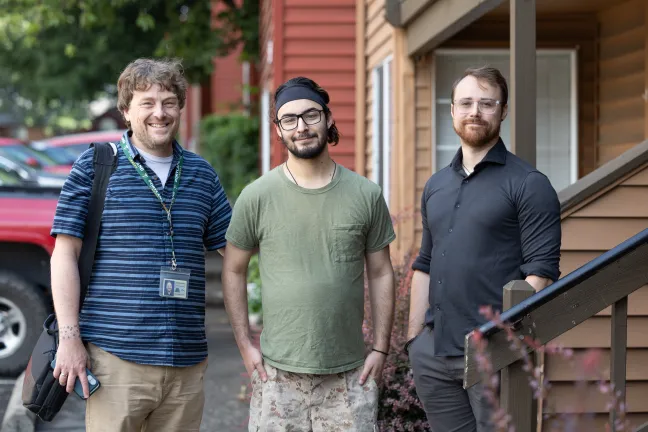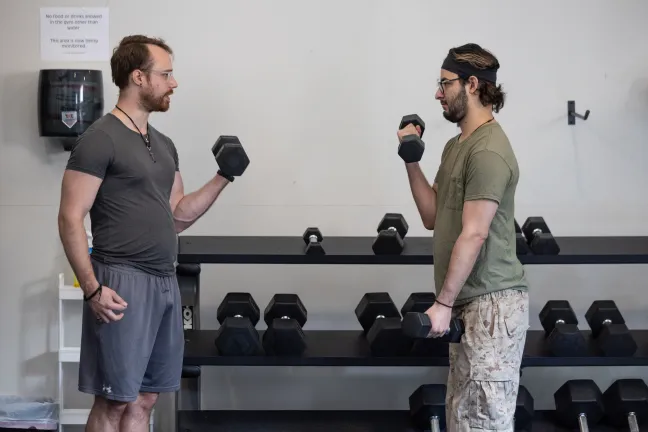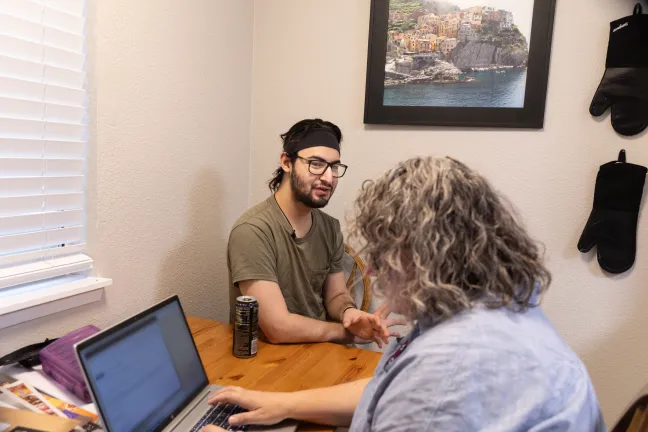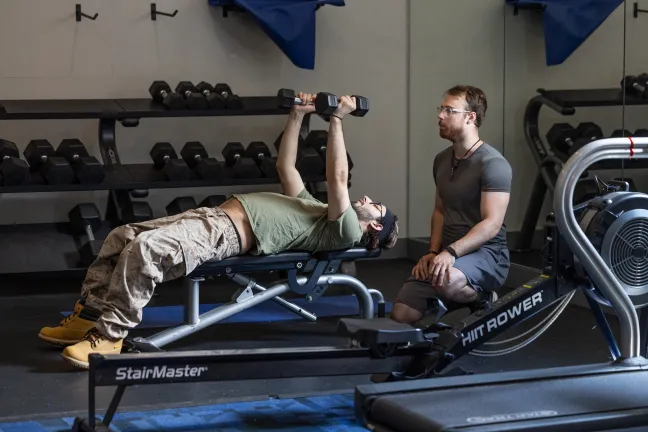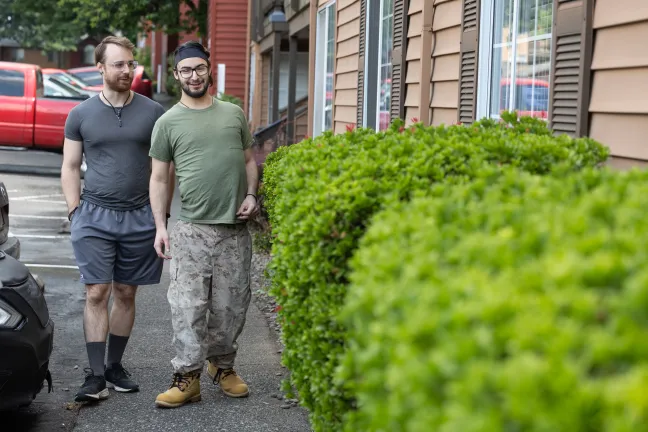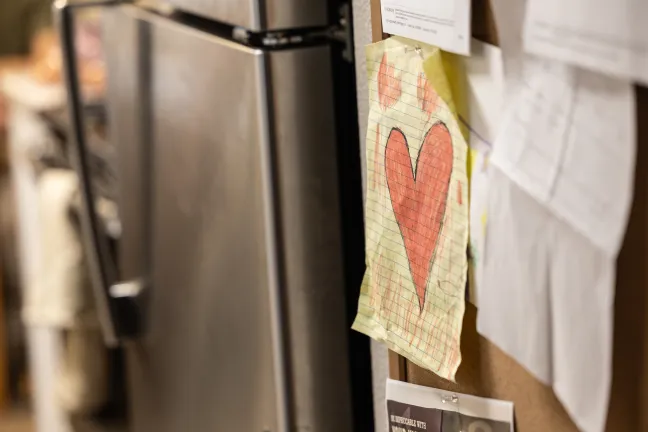When Jayson first connected with Thacher Schmid, a case manager with the County's Intellectual and Developmental Disabilities (I/DD) Services Division, he was homeless and staying in transitional housing. Before that, he had been living on the streets of Salem for about three years.
“I was technically homeless,” Jayson recalled. “[The Oregon Department of Human Services] came to me and said, “‘Hey, I have a program and housing. Do you want a shot at basically rebooting your life?’ and I was like ‘Yes!’”
Aside from a 10 year stint in California, Jayson — one of eight siblings in a large extended family — has spent most of his life in Oregon, attending elementary, middle and high school in the Gresham area.
Born with cerebral palsy, he has navigated challenges throughout his life. But he doesn’t consider the condition one of them. “I was born with it. It’s not something that I notice.”
However, among all his experiences, he never expected to face homelessness.
“I fell into homelessness at age 20. It was nothing I ever intended,” he said.
Now 24, he says that if it weren’t for his Multnomah County case managers, personal support worker and his friends, he believes he’d “literally still [be] down in Salem, still in a tent, still freezing… still just trying to survive. There’s a lot of factors that go into people just kinda being stuck and getting out of being stuck.”
Jayson’s story is far too familiar.
“People with intellectual and developmental disabilities are disproportionately likely to be at risk for, or become, houseless,” said Schmid who, through his work in the Regional Long-Term Rent Assistance (RLRA) Program, first met Jayson.
“And when they do become unhoused, people may not even notice their disability.”
Funded by the Metro Supportive Housing Services measure, the Multnomah County I/DD RLRA program offers permanent supportive housing to 15 households who are experiencing or have experienced long-term homelessness, and have an intellectual or developmental disability — that includes lifelong neurodivergent conditions like autism, cerebral palsy and epilepsy.
“Permanent supportive housing can be like a kind of magic,” said Schmid. “It brings together the power of housing first — a roof over one’s head, locking door, bathroom, kitchen, stability and safety — and the supportive services, which can include things like Medicaid-funded attendant care to help with Activities of Daily Living, mental health or substance use treatment, referrals to job programs and system navigation that can support people with disabilities.”
Case managers like Schmid offer a combination of housing stability support and Intellectual and Developmental Disabilities support, which can include connection to coordinated attendant care agencies and job programs. Schmid and Jayson worked together to identify barriers, make plans to overcome them and get him into his current home.
“Our clients struggle with advocacy,” added Chablue Shee, another I/DD supportive housing case manager who also worked with Jayson. “They often don’t have anybody. They don’t have a strong natural support system that they can rely on. Having these supports just means they'll be someone they can reach out to when they need them.
“County case managers also serve as an in-between for coordinating services, especially with the landlord and property manager — making them feel safe and having a stable place to live and to be able to access them,” said Shee.
Even seemingly minor support through the RLRA program, like help getting the right furniture or equipment for the home, are meaningful.
“It’s small things, like even getting grab bars in the shower,” said Schmid.
When people are able to stabilize in housing, outcomes can improve across every part of their lives from housing to health, to being able to get a job to improvements in their family network.
“One of the things that we've seen when people are able to get into a permanent supportive housing situation like this is we see that there's more space for them to heal and to grieve,” said Schmid.
“In all of the 15 households in this program, people have been through a lot of trauma.”
Jayson recognizes all the things that had to be in place for him to land in his own home: supportive housing services, Medicaid funding, and a contingent of friends willing to show up for him.
“My friends helped me. They helped me get a ride. They said, ‘We’ll help you pack all your stuff,’” he said. “They, like Thacher, threw me into the metaphorical river that pushed me up to Portland and pushed me to this home.”
Today, Jason exercises and is working to increase his mobility. He attends social events and cooks with his personal support worker, Levi: “Just one of the dudes for me. He’s just one of the dudes.”
Jayson is also looking forward to securing a job — he recently submitted applications through Relay Resources, a nonprofit that works to transform workplaces and communities by championing disability inclusion — as well as getting a dog.
“I feel very grateful to have had a chance to work with and know you because I think you’re an amazing person, very sweet, very strong … but also with this ‘rebel, renegade side,’” Schmid tells Jayson directly.
Jayson responds right back: “I technically probably wouldn't even be in this situation, in this house, if we didn’t meet and if you didn’t push me in the right direction.”
